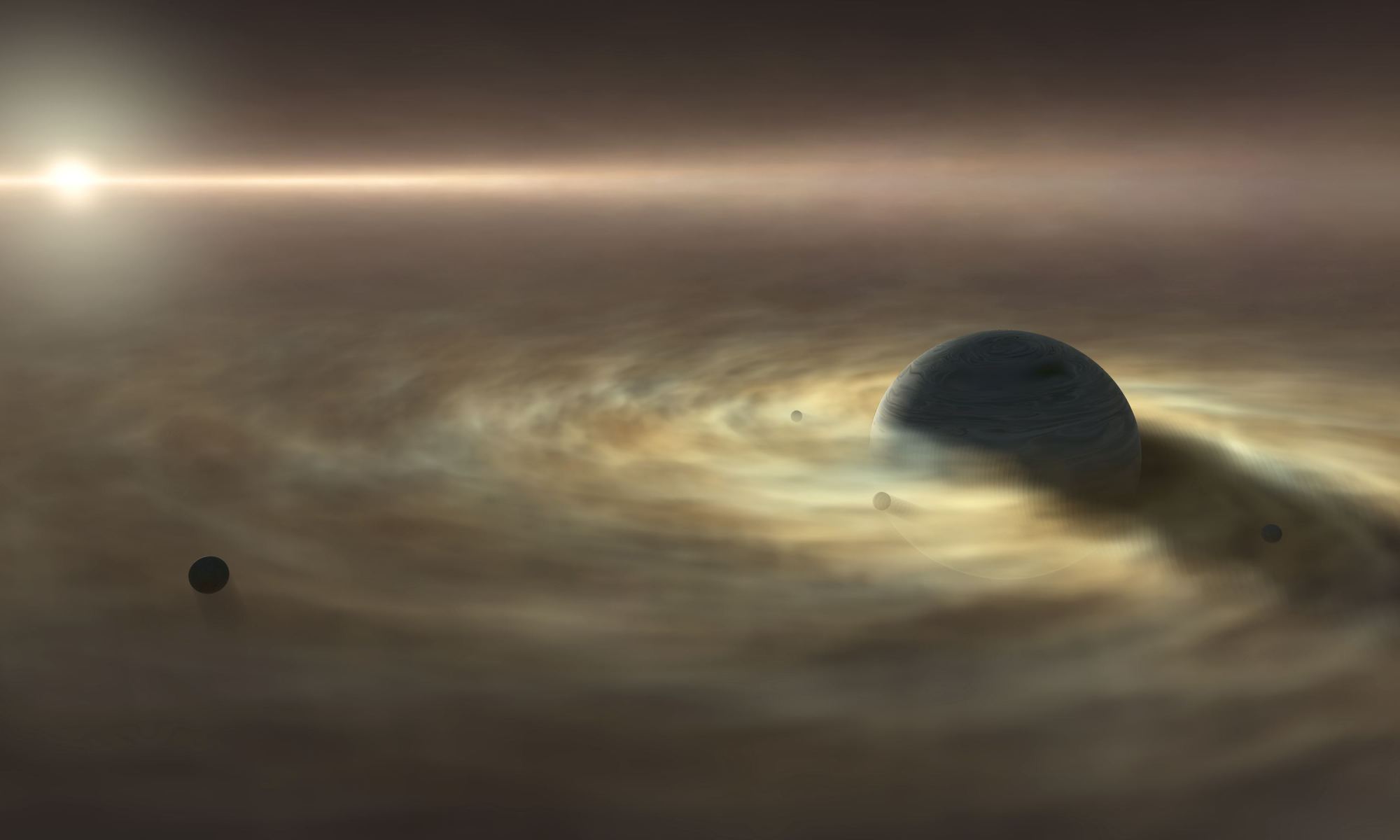Cosmic Dust and Gas Stop Planets From Consuming Their Moons

Many of the planets spread across our Solar System feature an impressive amount of natural satellites, with Saturn being the champion as 82 moons surround it while 79 are spinning around Jupiter. In the past, it was believed that moons would form around the circumplanetary disks that can be found across a new planet, with the objects growing together.
Several studies have shown that the theory may not be right, according to data obtained from sophisticated simulations. A team of Japanese researchers decided to explore the possibilities with the help of a series of simulations that offer valuable data about the way in which disks of dust and gas can contribute to the formation of the moons.
Planets cannot consume their moons because of the cosmic dust and gas
Massive moons like Titan tend to be surrounded by a few smaller ones and a significant amount of petite ones. This is also the case for the moons of Uranus and Jupiter, which represent a considerable amount of the mass that can be found in the system. This information contradicts conclusions that were made by previous research.
The Japanese researchers developed a new version of moon formation simulations that take into account a realistic temperature distribution pattern, which can be influenced by the way in which cosmic gas and dust are spread across the protoplanetary disks. The role played by the gas which surrounds the disk and the gravitational forces exerted by other satellites were also observed and noted.
Dust found in a circumplanetary disk tended to generate a stable zone that prevents moons from collapsing into the planet during the formation process. This is not the case for smaller satellites since they cannot orbit around the safe zone. When the formation process is complete, the gas will vanish, and satellites that have managed to survive will follow a stable orbit. A paper has been published in a scientific journal.
0 comments